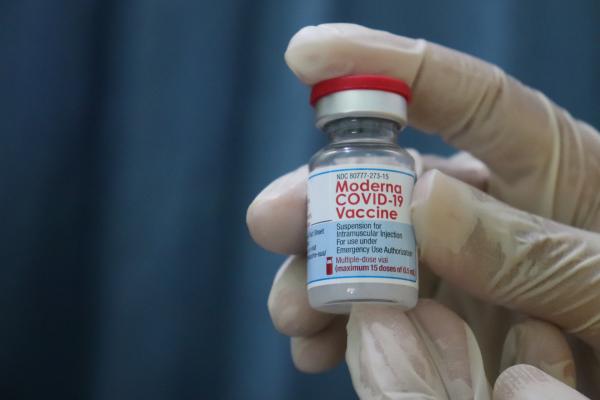Public health officials have tried desperately to answer this question for the better part of two years: how do you convince the intransigent minority of vaccine-hesitant Americans to roll up their sleeves and get a COVID shot? Suggested answers have ranged from censoring COVID “misinformation” on social media to raffling off prizes in vaccine lotteries and mandating that people get vaccinated or lose their jobs. [1] These proposals haven't yielded much success because they don't address the ultimate cause of vaccine hesitancy: skeptics' distrust of government.
This simple explanation eluded the media for the better part of two years as they tried repeatedly to make COVID vaccination a partisan issue, though the New York Times has finally wised up, correctly identifying the problem and proposing a workable solution in A Los Angeles Vaccine Clinic Overcomes Mistrust Skeptic by Skeptic.
The story recounts the experience of the staff at a “gymnasium turned vaccination center” in the Watts neighborhood of south LA. Instead of complaining that Facebook “misinformation” or partisanship had driven the community to vaccine hesitancy, Barbara Ferrer, head of the Los Angeles County public health department, identified broken trust between citizens and their government as the real issue:
"… [V]accine hesitancy, Ferrer says, is something much broader than just a single medical issue. She describes it as a window into a broken relationship between government and the governed, one that is starkly on display on the streets around the vaccination site in Watts … 'For some in our communities there really is a long, long history of not being able to trust government because government hasn’t done right by them. It’s not rooted in hate, or in politics. It’s rooted in — I’m not sure government has my back.'”
Ferrer's analysis has been validated by several studies that have looked at why so many people become vaccine skeptics. The common thread between these diverse groups from all over the world is a deep distrust of authority and the feeling that they are politically powerless to improve the situation. This observation helps explain why the prevailing approaches to combating vaccine hesitancy, like forcing the shots on people, have failed, but it also points to a practical solution, also addressed by the Times:
"The stories that the staff of the Los Angeles County Department of Public Health tell after seven months in the gym are vital to understanding how mistrust lies at the heart of vaccine hesitancy — and how it can be overcome with enormous dedication and judgment-free persistence."
What does "judgement-free persistence" look like in practice? Put briefly, listening to people's concerns about the vaccines and building relationships with them. The clinic staff employed a variety of methods along the way, like befriending people in a park near the gym over the course of several month. But their success came down to “really good eye contact and listening really well,” pediatrician Dr. David Bolour told the Times. “It’s persistence. They see us out here. They get to know us. They get to see we are normal people.”
One by one, many residents in the surrounding community went from refusing the shots for fear that the government would track their movements to rolling up their sleeves to get vaccinated.
Some readers may retort that the experience of a single neighborhood in California doesn't create a road map for fighting vaccine hesitancy more broadly. This is just an anecdote, the criticism continues, when we really need a policy that can push large groups of people to get vaccinated. I don't buy that argument for two reasons. First, the staff at this single clinic have administered 14,000 shots since June. Is it really so unrealistic to suggest that other cities and counties emulate their approach? Second, when you ask former vaccine skeptics why they change their minds, the answer usually isn't “Twitter banned me for posting misinformation and I saw the error of my ways.”
In this case from Florida, for instance, one man decided to get his shot after a local physician had a beer with him and respectfully addressed his concerns about the vaccines. Yes, it's an anecdote as well, but one backed up by plenty of research showing that people make health care decisions for their reasons, not yours. The harder you try to push your message on someone else, the more you'll engender their hostility.
The size of the march in Vienna this weekend. pic.twitter.com/PoMO0Mt8XQ
— Aaron Ginn (@aginnt) January 17, 2022
We've seen that play out many times over the last two years, as any of the massive protests against vaccine mandates will confirm. But the more important point is that there are other vaccine-preventable diseases, and there will almost certainly be another COVID-like pathogen at some point in the future. We need to apply what we know about vaccine hesitancy before it arrives.
The Times story suggests that we're trending in the right direction. And shortly after the Supreme Court rejected OSHA's vaccine mandate, the UK announced plans to rescind its mandatory passport scheme. Perhaps we're finally starting to realize that coercion is no way to promote vaccine uptake.
[1] I put "misinformation" in quotes because the social media platforms inevitably ban reputable scientists who are trying to educate the public, thereby illustrating how unhelpful their censorship efforts are.




